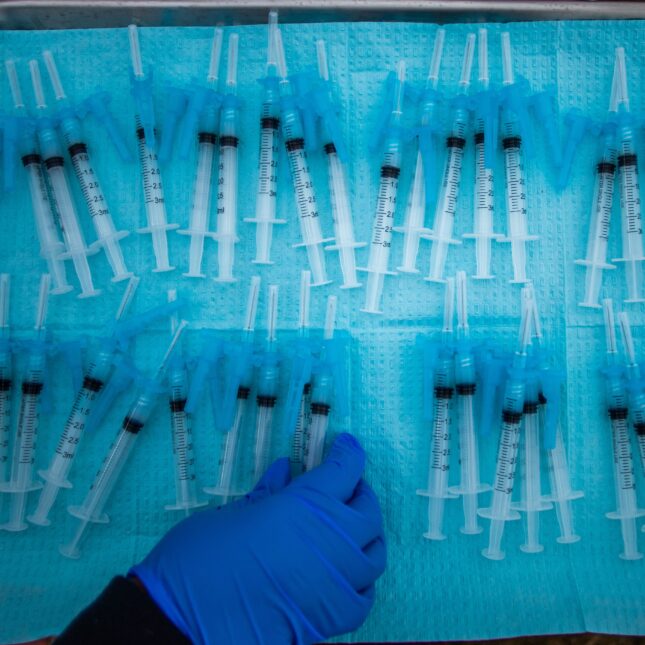
Want to stay on top of the science and politics driving biotech today? Sign up to get our biotech newsletter in your inbox.
Good morning and happy Friday. We discuss a new innovative immunotherapy, and we take a look at some of the earnings highlights yesterday.
FDA approves immunotherapy for soft-tissue cancer
The Food and Drug Administration has approved a T cell immunotherapy from Adaptimmune Therapeutics for a rare cancer that arises in the body’s soft tissues, extending the power of immunotherapies to difficult-to-reach sarcomas.
The medicine, called Tecelra, is what’s known as a T cell receptor therapy. The approach has similarities to the CAR-T treatments that have dramatically improved the care of some blood cancers, but it has tricks up its sleeve that allow it to target solid tumors, which CAR-Ts have struggled to fight.
Read more from STAT’s Drew Joseph.
Moderna is still in a Covid hangover
From my colleague Matt Herper: Moderna, the company that developed one of the first vaccines for Covid, had been having a pretty good year. Shares traded as high as $166 in May as the company notched an approval for its second product, an RSV vaccine for older people.
Biogen’s shift away from neuroscience
From my colleague Adam Feuerstein: In its earnings presentation yesterday, Biogen devoted seven slides to an antibody drug for kidney diseases that the company picked up as part of its $1.8 billion acquisition of Hi-Bio. The emphasis placed on the drug is indicative of Biogen’s shift toward immunology R&D and business development, and away from its traditional neuroscience foundation.
“I think first, in terms of where we’re looking, I think we’re already long neuroscience, so we’re probably looking outside of that space — immunology, rare diseases,” said CEO Chris Viehbacher, in response to the “M&A targets” question that CEOs get from analysts every three months.
While Biogen would like to find another Reata-type acquisition — with a product ready for the market — those types of deals are pretty rare, Viehbacher said. “We’re not in a position where I think we’re desperate to do a deal,” he said. Transactions like Hi-Bio, which could deliver products in the 2027-2030 timeframe, are more likely, he added.
On the neuroscience front: Biogen and its partner Eisai said sales of their Alzheimer’s disease drug Leqembi amounted to $40 million in the second quarter, more than double the amount in the first quarter. After a slow launch, the drug appears to be gaining a foothold in the market. The long-term outlook for the drug remains hazy, though, especially with the uncertainty in Europe, where the companies will need to win a tough appeal after regulators there recommended its rejection.
AbbVie closes Cerevel acquisition
AbbVie said yesterday that it closed its $8.5 billion acquisition of neuroscience company Cerevel Therapeutics.
There had been concerns about the prospects for the deal, as the FTC under the leadership of Lina Khan has been scrutinizing M&A in the biopharma industry. The agency earlier this year had asked AbbVie and Cerevel for more information about the deal.
The deal highlights AbbVie’s new focus on neuroscience, as the pharma giant faces pressure to restock its pipeline in the face of impending sales declines for some of its blockbuster products. When announcing the Cerevel deal, AbbVie pointed to a schizophrenia drug called emraclidine, but another Cerevel drug called tavapadon for Parkinson’s disease has also shown early positive data.
Who in biotech is having a brat summer?
Why has it taken so long for the world to get malaria vaccines? And what relationship should drug companies have with patient advocates?
We discuss all that and more in this week’s episode of “The Readout LOUD,” our biotech podcast. We look at a new special report on the decades-long quest to develop the world’s first malaria vaccines, as well as Sarepta’s move to censor a patient video.
Jim Wilson leaves Penn to start new companies
Gene therapy pioneer Jim Wilson is leaving his longtime academic home at the University of Pennsylvania to found two new companies, bringing along many of the employees who worked with him at Penn and the many discoveries they made at the academic program over three decades.
This comes after Penn’s program hit several speed bumps, as funding from industry sources dropped off. Additionally, a STAT investigation in 2022 revealed that under Wilson’s leadership, the program fostered toxicity and mismanagement that affected research programs and led to an exodus of staff.
Read more from STAT’s Drew Joseph.
More reads
- UniQure, Arbutus and HilleVax all lay off staff as biotechs streamline operations and cut costs, Fierce Biotech
- UnitedHealth and HCA clash over hospital chain’s rates in ‘battle of the giants,’ STAT
- Opinion: Address liquid biopsy disparities today to ensure equity in outcomes tomorrow, STAT
To submit a correction request, please visit our Contact Us page.











STAT encourages you to share your voice. We welcome your commentary, criticism, and expertise on our subscriber-only platform, STAT+ Connect